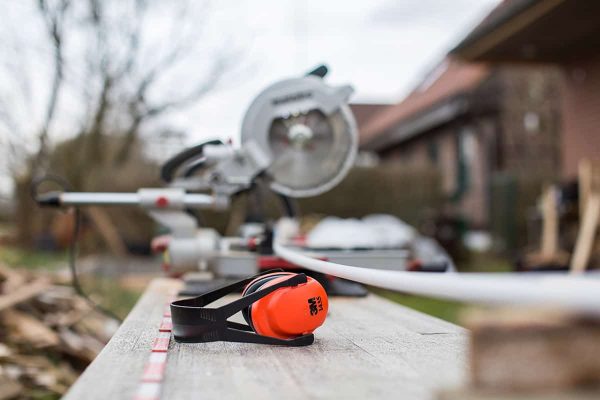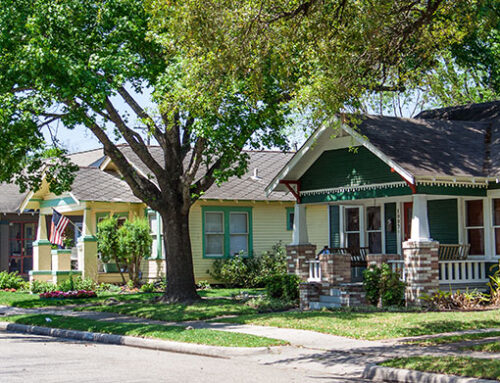
I frequently meet new real estate investors who are eager to get started, but they are confused about their financing options. Some believe that there are no loan products available for buying and rehabbing an investment house. Others are vaguely aware of rehab loans, but they assume that investors generally don’t qualify for them. But that’s not necessarily true. So let’s take a look at what home rehab loans are and how investors can leverage this type of financing.
Rehab loans roll the purchase and renovation costs into a single loan. They are used by real estate investors to buy and renovate a house with the intention of selling the property at full market value. But each type of rehab loan may have different associated requirements, interest rates, and other qualifying terms.
Three Types of Home Rehab Loans for Investors
While real estate investors tend to be creative with money, there are some straightforward ways to access financing for buying, renovating, and selling investment houses. The three main categories of loans include the FHA 203(k), the Fannie Mae Homestyle Renovation loan, and hard money loans. Here’s the rundown on all three.
| 203(k) | HomeStyle | Hard Money | |
| Project Choice | Not all properties or rehab projects will qualify | Can be used for any renovation that adds property value | If it delivers ROI, you can do it |
| Accessibility | Few experienced lenders | Difficult to find a lender | Convenient |
| Down Payment | Could be as low as 3.5% | Around 5% minimum | Negotiable |
| Mortgage Insurance Required | Yes | Depending on loan-to-value ratio | No |
| Payment Options | Choice between fixed-rate or adjustable-rate mortgage | Fixed-rate or Adjustable available | Negotiable |
| Deadlines | Six months to finish rehab | Must be complete within 12 months | Short-term but negotiable |
FHA 203(k) Loans
New investors are attracted to the FHA 203(k) loan for its ease of entry into buying an investment house. The down payments can be low compared to other rehab loan products—as little as 3.5% down—and the funds can be gifted so you don’t necessarily have to invest a large sum of money upfront. You can currently borrow up to the mortgage limit for the area, which varies regionally. That said, the house must meet certain code and energy efficiency requirements when the rehab is complete.
Beyond that, there are some significant downsides to using this type of loan. Most mortgage lenders are only familiar with the more conventional loan products and so finding a broker who deals in this loan type can be a challenge. In addition, there are limits on funding so your renovation will need to be priced out very carefully so you stay in line with neighborhood comparables. On top of it all, you will only have six months to get all the work done and signed off—that’s a quick turnaround for a novice investor!
While the FHA 203(k) loan is not technically aimed at real estate investors, it can be used by new investors to get started. This loan currently requires that you live in the house for 12 months, so many investors will use it to purchase their first property, move into it, and then refinance with a conventional or investment-focused mortgage. This opens the door to using the FHA 203(k) loan to buy another property. However, that is a turtle-paced technique for getting started with serious real estate investing.
Fannie Mae HomeStyle Renovation Loans
Similar to the 203(k) loan, the Homestyle Renovation loan allows for some financial flexibility. While the down payment is not as low as with the 203(k), it is still competitive at around 5%. And you can currently borrow up to 85% of the after-repair value. The best part is that you are not so limited with the kinds of renovations that you can perform. As long as the improvement adds value to the property—even if it’s a luxury amenity— you’ve got the go-ahead.
The big disadvantage to the Homestyle Renovation loan is the lender’s oversight. Even if you’re pretty handy and the renovation is fairly straightforward, you will probably have to hire a licensed and insured contractor. You’ll need to submit the contractor’s project plans and other documentation for the lender to review and approve. Some contractors may not be willing to engage in this review process and undergo regular inspections of the property throughout the renovation. And, with all these moving pieces and parts throughout the project, you still only have 12 months to complete it.
Fannie Mae Homestyle loans may be best for newer real estate investors who enjoy the security of institutional oversight or don’t yet have a network of professionals to rely upon. While this loan provides more flexibility than a 203(k) loan, it still demands a lot of paperwork and time to ensure you meet all of the requirements.
Hard Money Loans
Hard money loans often seem very mysterious to new investors. No, it’s not “dirty money” or somehow related to mob activity! It’s called “hard money” because the loan is secured by a tangible asset—the investment property. These private lenders do not look at your credit-worthiness as much the bottom-line numbers for ROI. Your reputation and experience play a role in their decision-making process too. That’s why some investors put together a credibility kit or package to share with hard money lenders when trying to establish a business relationship.
The biggest benefit to hard money loans is the lack of red tape. Unlike getting financing from a bank—which requires adherence to regulations such as the Dodd-Frank Act—hard money lenders don’t usually make you jump through regulatory hoops. In fact, you can have up to 100% of the money in-hand for your entire investment and renovation within days or weeks, depending upon the lender. That’s not to say that if you are new to the game, the hard money lender may ask you to put some money up too. But that’s the magic of it—everything from the funding amount, interest rate, points, and payoff period can be negotiated. You simply need to show that you have a good deal on your hands.
The downside is that if you mess up and don’t follow through on your end of the deal, your reputation is likely to follow you. Hard money loans are intended to be short-term, just long enough to enable you to complete the project and get the property sold. Since the loan is short-term, you can also expect to pay up to 10 percentage points higher in interest. So, you’ll need to keep an eye on the payoff date and make sure you have a solid exit strategy in place before you sign up for a hard money loan.
Investing With Independence, Support, and Financing
New real estate investors are often looking for that trifecta of being an independent business owner, having solid supports in place to get the deal done, and access to financing for business growth. That’s why when novices come to me to ask about the value of their different loan options, I plant a seed that can ultimately sprout a much better plan!
Sure, there’s something to be said for all three loan types, but each comes with a different mix of oversight and support. The 203(k) and Homestyle Renovation loans are pretty easy to secure, but they come with a lot of regulatory oversight and imposed deadlines. Hard money loans make much more sense for a fix, rehab and sell, but you must have lots of confidence in the deal and your ability to get the rehab done efficiently on your own.
For the money though, you just can’t beat the resources available for new investors who become HomeVestors® franchisees. All new independently owned and operated franchises receive comprehensive training on real estate investing and ongoing mentorship. And that’s in addition to the proprietary valuation software ValueChek™. ValueChek™ helps franchisees to quickly and easily crunch the numbers so they can be more certain that the deal makes sense before they make an offer. Also, HomeVestors® provides financing to franchisees for qualifying properties and it provides development agents, who act as mentors to help the franchisees identify convenient exit strategies, if needed.
If you are looking for the perfect mix of business autonomy, investment mentoring, and financial support, get in touch with HomeVestors® today.
Each franchise office is independently owned and operated.
Contact
"*" indicates required fields





